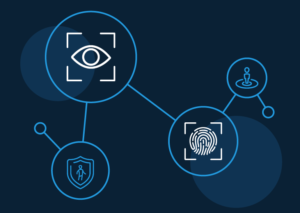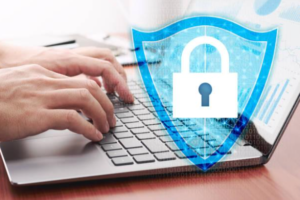The digital age has revolutionized the way we interact with the world. We can connect with friends and family across the globe, shop for products and services from the comfort of our homes, and access a wealth of information with just a few clicks. However, as we navigate this increasingly connected world, it’s becoming more and more important to protect our digital privacy and secure our data.
The rise of cyber threats such as hacking, identity theft, and phishing scams has made it imperative for individuals and organizations to prioritize digital security. In today’s digital landscape, it’s not a question of if, but when, you will be targeted by cybercriminals. That’s why it’s essential to take proactive measures to safeguard your personal and sensitive information.
The first step in protecting your digital privacy is to be aware of the information you’re sharing online. Social media platforms, online retailers, and other websites often ask for personal information such as your name, address, and credit card details. While it may be necessary to provide this information in certain situations, it’s important to be selective about what you share and to read privacy policies carefully before doing so.
Another important step in securing your data is to use strong passwords and change them frequently. Many people use weak, easily guessable passwords, which can leave them vulnerable to hacking and identity theft. A strong password should be at least 12 characters long and include a mix of letters, numbers, and symbols. It’s also a good idea to use a different password for each account and to avoid using personal information such as your name or birthdate.
Encryption is another powerful tool for protecting your digital privacy. Encryption is the process of converting information into a code that can only be deciphered by authorized users. Many websites and apps use encryption to protect user data, but it’s also possible to encrypt your own data using software tools such as VeraCrypt or BitLocker.
Using virtual private networks (VPNs) can also be an effective way to safeguard your digital privacy. A VPN creates a secure, encrypted connection between your device and the internet, making it more difficult for hackers and other unauthorized users to intercept your data. VPNs are especially useful when using public Wi-Fi networks, which can be vulnerable to cyber attacks.
In addition to these technical measures, it’s also important to be vigilant about phishing scams and other social engineering tactics. Phishing scams involve fraudsters posing as legitimate organizations, such as banks or government agencies, to trick users into revealing sensitive information. It’s important to be skeptical of unsolicited emails or phone calls and to never provide personal information unless you’re sure of the legitimacy of the request.
Finally, it’s important to keep your software and operating systems up to date with the latest security patches and updates. Cyber criminals often exploit vulnerabilities in outdated software to gain access to users’ systems and data. Keeping your software up to date can help protect against these types of attacks.
In conclusion, digital privacy and data security are essential components of living in today’s connected world. By taking proactive measures to protect your personal information, such as being selective about what you share online, using strong passwords, and encrypting your data, you can reduce your risk of falling victim to cyber threats. By staying informed about the latest security threats and being vigilant about social engineering tactics, you can navigate the complexities of digital privacy and enjoy the benefits of the digital age with confidence.







Be First to Comment